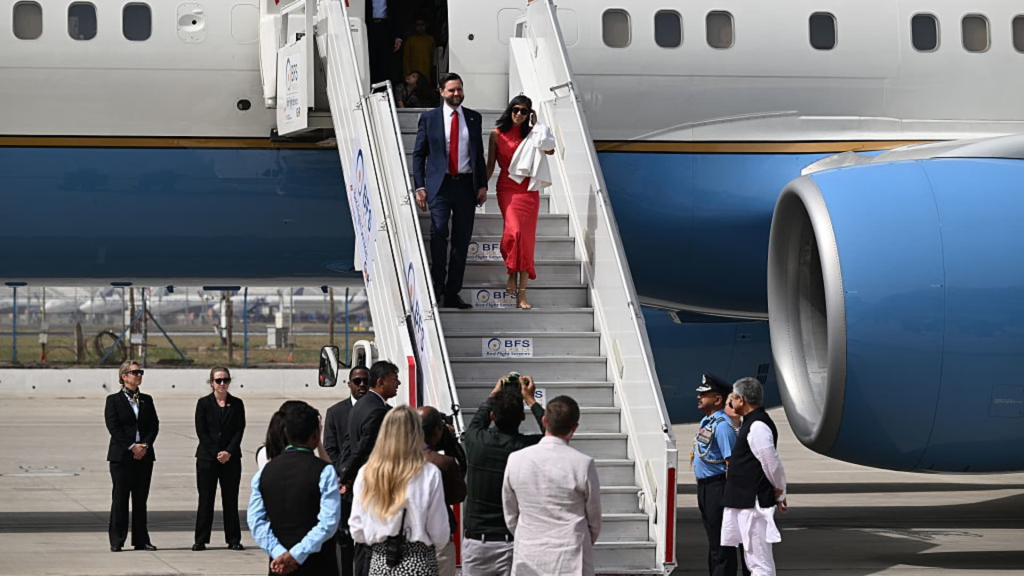U.S. Vice President JD Vance commenced a four-day trip to India on Monday, engaging in talks with Prime Minister Narendra Modi. As New Delhi seeks to circumvent potentially steep U.S. tariffs through an early trade agreement, the high-profile visit aims to enhance relations with the Trump administration.
The initial day of Vance’s visit, described largely as a personal trip with family, will include visits to iconic sites such as the Taj Mahal and participation in a wedding in Jaipur. Notably, Vance’s wife, Usha, is the daughter of Indian immigrants, which adds a personal significance to the visit.
Upon landing at New Delhi’s Palam airport, Vance arrived from Rome, where he held a private audience with Pope Francis on Easter Sunday.
In their discussions, Modi and Vance are expected to assess advancements made on the bilateral agenda that was established during Modi’s meeting with President Donald Trump in Washington in February. Key topics are likely to include trade “fairness” and the expansion of their defense partnership.
Following his election, Trump’s first international visitor was Prime Minister Modi, and reports indicate that the Indian government is exploring options to reduce tariffs on over half of its imports from the U.S., valued at $41.8 billion in 2024, as part of the evolving trade relationship.
Despite this, President Trump has continued to label India as a “tariff abuser” and “tariff king,” highlighting the complexities in their trade discussions.
Indian foreign ministry spokesperson Randhir Jaiswal expressed optimism about Vance’s visit, stating it would further enhance bilateral relations.
The United States stands as India’s largest trading partner, with bilateral trade reaching $129 billion in 2024, resulting in a $45.7 billion surplus favoring India, according to U.S. government trade statistics.
Indian officials are hopeful of finalizing a trade agreement with the U.S. during the 90-day pause on tariff escalations that Trump announced on April 9, targeting major trading partners, including India.
Furthermore, Vance’s visit is considered pivotal in paving the way for Trump’s upcoming trip to India later this year for a summit involving the Quad grouping, which comprises India, Australia, Japan, and the U.S.
Harsh Pant, head of foreign policy at the Observer Research Foundation in Delhi, noted the critical timing of Vance’s visit against the backdrop of ongoing trade negotiations.
“With rising tensions between the U.S. and China, and Vance’s prominent role in American diplomacy, this visit holds increased importance,” he observed.
While Vance is accompanied by a team of U.S. administration officials, it is not anticipated that any formal agreements will be signed during this trip, according to sources familiar with the visit.
Both India and the U.S. aim to formalize a framework for their defense partnership within this year. New Delhi also intends to acquire and collaboratively produce military equipment, including Javelin anti-tank missiles and Stryker infantry combat vehicles, as outlined in a joint statement following the February meeting.
Further discussions concerning these procurements are expected to take place during U.S. Defense Secretary Pete Hegseth’s forthcoming visit to India in the coming months.


























